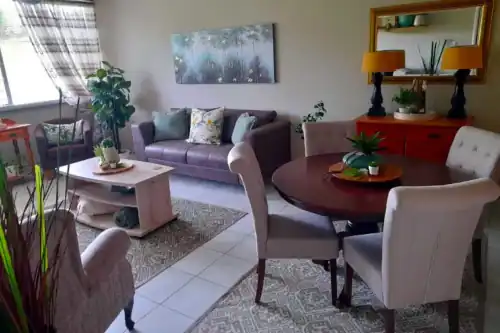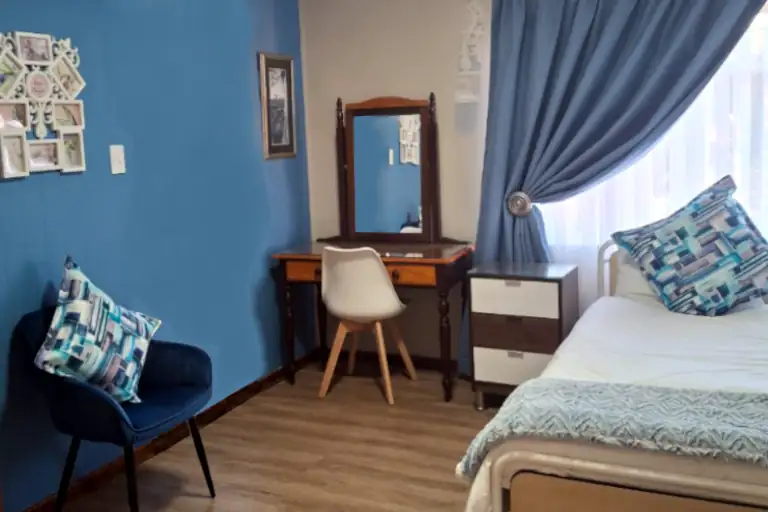How Gratitude Can Transform Your Mindset: A Caretaker’s Perspective
Every day at La Gratitude, I see firsthand how a mindset can shift. Not through grand changes, but through something simple and steady: gratitude. You might not think it at first, but recognising the good in your life has the power to transform the way you see the world, the way you feel, and even how your body responds to stress.
This isn’t philosophy or wishful thinking. It’s practical, it’s grounded, and it works—especially in later years when life begins to slow down and reflection becomes natural.
You may also be interested in:
9 Ways to Provide Elderly Support to People in Your Life
How to Cultivate a Life of Inspired Living in Retirement

Why Gratitude Matters in Retirement Living
Retirement often brings change. For many, it means downsizing, leaving familiar places, or adjusting to health changes. These shifts can weigh heavily, even in a secure and caring place like La Gratitude. The changes can feel like a loss of independence, identity, or routine—things that have anchored life for decades. Suddenly, what was once familiar becomes unfamiliar. It can be unsettling.
But I’ve noticed something remarkable: the residents who actively practise gratitude seem to cope better. They laugh more. Sleep deeper. Connect easier. Even when facing illness, loneliness, or physical limitations, gratitude offers them a stable perspective. It gives them a way to centre themselves, to notice what still brings comfort.
Gratitude can transform your mindset from focusing on what’s lost to appreciating what still surrounds you: safety, companionship, and moments of peace. It gently redirects your thoughts toward what is still working, what is still beautiful, and what is still meaningful. Whether it’s the simple pleasure of a shared cup of tea, the reliability of daily meals, or the sound of birds in the trees outside your window—these are not small things. They are the foundation of a calm, contented mind. And when recognised, they change everything.
The Science Behind Gratitude
This isn’t just a caretaker’s opinion—there’s real evidence behind the benefits of gratitude. According to Harvard Health, practising gratitude regularly helps people feel more positive emotions, savour meaningful experiences, improve their physical health, and build stronger connections with others. These effects aren’t just emotional—they’re physiological.
Research shows that gratitude can lower blood pressure, support better sleep, reduce levels of the stress hormone cortisol, and even boost immune function. In older adults especially, these outcomes matter. A more resilient immune system and steadier mood can make a tangible difference in daily comfort and wellbeing.
Neurologically, the brain adapts to where we place our focus. When we make a habit of noticing and appreciating the good—however small—our brain begins to form and strengthen neural pathways linked to optimism, empathy, and resilience. Gratitude doesn’t ignore the hard days. It simply rebalances the scale, helping to transform the emotional tone of everyday life into something more stable and hopeful.
Daily Ways to Practise Gratitude at La Gratitude
You don’t need a journal or a routine to begin. Gratitude can be a quiet internal habit or a shared part of daily life. Here’s what I’ve seen work well among our residents:
- Morning Check-Ins: Many start their mornings by thinking of three things they’re thankful for before getting out of bed. It sets a calm tone for the day. One lady told me she always says, “I woke up. I have tea. I have warm feet.” That’s it. But it transforms her whole mood.
- Thank-You Conversations: Some residents make a point of thanking someone each day—a nurse, a neighbour, the staff in the kitchen. This small exchange shifts the focus from complaint to appreciation. And yes, the ripple effect is real: kindness spreads.
- Sharing Gratitude in Groups: We host quiet tea gatherings where residents talk about the highlights of their week. There’s no pressure, just a space to share. Even recalling a sunny afternoon or a phone call from family can transform the group’s atmosphere.
- Gratitude Amidst Challenges: Of course, life isn’t always light. We see grief, illness, and loneliness too. But even here, gratitude has a place. Not to cover up sorrow, but to offer balance.
A gentleman in frail care once told me, “Every morning I still see the birds outside my window. That alone is enough.” He knew his health was failing, but he chose to notice life anyway. His mindset didn’t ignore reality—it simply added gratitude to it. That’s real strength. That’s transformation in its purest form.
The Role of Environment in Supporting Mindset
Living at La Gratitude plays its own part. Our secure facilities, well-kept grounds, and dependable care help take some of the weight off. When you don’t have to worry about basics like safety or meals, it’s easier to focus on things that bring you joy.
This isn’t accidental. Our community is built to support peace of mind. The environment itself contributes to a mindset shift. When surroundings are calm, your inner world can reflect that.
Modern Living Flats

Basic Cottages

Modern Comfort Cottages

Comfortable Frail Care

Gratitude and Connection
Another key benefit? It draws people closer. I’ve seen once-isolated residents bond over shared stories of thankfulness. Gratitude naturally opens people up. It makes space for empathy.
When people speak about what they value, they reveal parts of themselves. That openness fosters connection—not just with each other, but with caregivers and staff. And over time, these connections transform from polite exchanges into real relationships.
Practical Tips for Embracing Gratitude
If you’re wondering how to get started, or you’re supporting a loved one who’s settling into retirement, here are a few grounded ways to encourage gratitude:
- Start Small: You don’t need big declarations. Begin by noticing one thing a day that made you smile, or eased your worry.
- Make It Routine: Attach gratitude to a regular part of your day—like brushing your teeth, making tea, or reading the paper. It helps form the habit.
- Share It: Tell someone when you feel thankful. Even a simple “I appreciate you” can uplift both of you.
- Use Visual Reminders: Some residents place photos or mementos where they’ll see them often. These can instantly transform a mood.
Transform Your Retirement with Gratitude
The truth is, retirement isn’t only about what you leave behind—it’s about what you cultivate next. Gratitude doesn’t erase difficulties, but it gives them context. It reminds you that even in times of change, there’s still something solid beneath your feet.
And at La Gratitude, we see it all the time: those who lean into thankfulness adapt with more ease. They smile more, engage more, and live with a kind of quiet courage that’s both inspiring and grounding.
Gratitude isn’t about being relentlessly positive. It’s about choosing where to place your attention. And over time, that simple decision can completely transform how you experience each day.
So whether you live here with us, or you’re considering making La Gratitude your home, know this: the power to shift your mindset doesn’t lie in the dramatic. It lies in the daily. And gratitude is one of the most powerful tools to support you on that path.
Thank you for your continued support, we appreciate your likes, follows and retweets on Facebook, X, Pinterest and LinkedIn. Make sure to share this post with friends and family.
You can make a difference
With your assistance, the volunteers at La Gratitude will be able to take better care of not only the residents at the old age home but also the greater Newcastle community. La Gratitude is constantly involved in outreach projects to help the elderly in need in and around Newcastle.
Your donations will be greatly beneficial in the provision of food and other basic necessities for the less fortunate elderly people that require assistance.
Donating is easy, click here to donate now.




